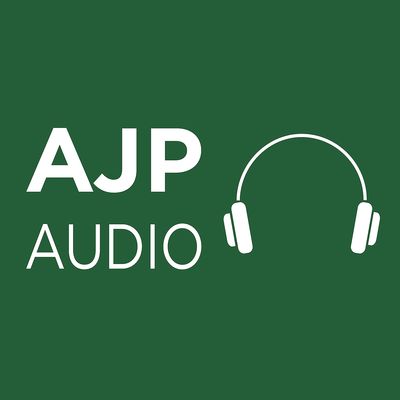Each episode of AJP Audio brings you an in-depth look at one of the articles featured in that month’s issue of The American Journal of Psychiatry, the official journal of the American Psychiatric Association. Wide-ranging interviews with article authors cover the background, rationale, main findings, and future implications of the research. This podcast is subject to the Terms of Use at ww.psychiatry.org. The views and opinions expressed in this podcast are those of the individual speakers only and do not necessarily represent the views of the American Psychiatric Association, its officers, trustees, or members. The content of this podcast is provided for general informational purposes only and is not intended as, and shall not be understood or construed as, medical or any other type of professional advice nor does it represent any statement of the standard of care. We strongly recommend that any listener follow the advice of physicians directly involved in their care and contact their local emergency response number for any medical emergency. The information within this podcast is provided as-is and is not guaranteed to be correct, complete, or accurate.
https://ajp.psychiatryonline.org/audio
April 2021: Reducing Adolescent Psychopathology in Socioeconomically Disadvantaged Children
Executive Editor Michael Roy speaks with Karen L. Bierman, Ph.D., about her article on reducing adolescent psychopathology in socioeconomically disadvantaged children with a preschool intervention.
Dr. Karen Bierman is the Evan Pugh University Professor, Professor of Psychology, Professor of Human Development and Family Studies, and Director of the Child Study Center at Penn State University. Her research looks at the design and evaluation of programs for social and emotional learning within schools and communities. She has also developed and evaluated group interventions for peer-rejected children.
- How the author became interested in this area of research [1:58]
- What we know about how exposure to chronic or unpredictable negative circumstances disturbs a developing brain [3:21]
- Why the intersection of growing up in adverse conditions and the beginning of formal schooling is significant in the life of a child [6:41]
- Objective of the study [7:54]
- Outline of the Head Start REDI program [9:26]
- Description of study participants [11:26]
- How the authors collected and analyzed data [13:20]
- How well did the intervention work in terms of reducing conduct problems, emotional symptoms, and peer problems among students? [14:31]
- Other key findings of the study [17:21]
- Did any results surprise the authors? [18:45]
- Study limitations [20:26]
- How this work fits in to the overall literature on this subject [22:21]
- Implications this work has for public health policy [24:49]
- Key points that researchers, clinicians, and other mental health professionals should take away from the article [26:31]
- Recommendations for further research in this area [27:37]
Be sure to let your colleagues know about the podcast, and please rate and review it on Apple Podcasts, Google Podcasts, Stitcher, Spotify, or wherever you listen to it.
Subscribe to the podcast here.
Listen to other podcasts produced by the American Psychiatric Association.
Browse articles online.
Watch Deputy Editor Daniel S. Pine, M.D., present highlights from the April 2021 issue.
Follow the journals of APA Publishing on Twitter.
E-mail us at ajp@psych.org
